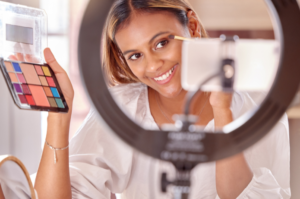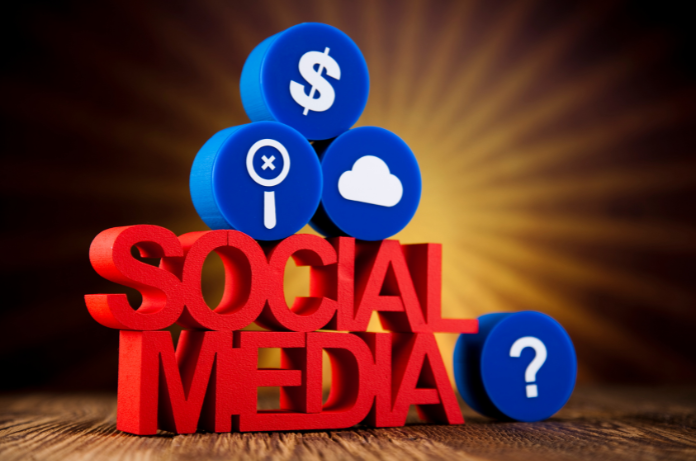In today’s fast-paced, hyper-connected world, social media has become an integral part of how we communicate and interact. From Gen Z scrolling through TikTok to small businesses growing their presence on Instagram, and professionals networking on LinkedIn, these platforms have shaped themselves into essential hubs for connections and networking.
Social media is no longer just for entertainment—it’s where relationships are formed, brands are built, and opportunities are discovered. With every scroll and click, we’re engaging with a space that blends the personal and professional, shaping the way we connect and grow in today’s digital age.
When used wisely, social media can be a powerful tool for personal and professional success. It connects us with others, raises awareness about important subjects, and offers space where we can share opinions and find like-minded people in communities. For businesses, social media has become a vital platform for growth, allowing brands to reach new audiences and engage directly with customers.
Beyond its practical uses, social media is also a source of entertainment and creativity, giving people a space to build their social lives and grow their audience. In today’s digital world, these platforms offer countless opportunities for connections, awareness, self-expression, creating self-employment to business.
1st step of illusion: social media is curating a flawless life
Social media has undoubtedly brought many positive changes to our lives, from helping us stay connected with loved ones to providing platforms for sharing knowledge, raising awareness, and even growing businesses. It’s a space where creativity thrives, and communities form around shared interests. But amid all these benefits lies a subtle downside—the creation of a carefully curated, flawless version of life.
Scroll through your feed, and you’ll see picture-perfect moments: vacations, celebrations, achievements. It often feels like everyone else has their life perfectly together. While these posts are intended to celebrate happiness, they can also make it difficult to appreciate your own reality. The constant comparison to others’ highlights can chip away at your self-esteem, leaving you feeling like you’re falling behind in some way.
The constant exposure to these picture-perfect portrayals of life can lead to an almost inevitable habit of comparing yourself to others, which can take a significant toll on mental health. This is particularly concerning for teenagers and adolescents, who are more impressionable and may begin to internalize these unrealistic standards.
They might start striving for a version of life that is simply unrealistic, setting themselves up for disappointment and self-doubt. It’s crucial to recognize the difference between real life and what’s shared online, or they risk chasing an elusive sense of happiness that, in reality, doesn’t exist. Understanding this distinction is key to maintaining a healthy perspective in a world dominated by social media.

Body image and beauty standards
As social media has flourished, so have unrealistic beauty standards that are often perpetuated through hugely edited AI-generated images and generative filters. These digital alterations not only promote unattainable ideals but also contribute to abnormal behaviors, particularly among teenagers and adolescents, who are already navigating issues of self-image. One alarming result of this trend is a phenomenon called “Snapchat dysphoria,” a condition where individuals become obsessed with looking like their filtered selves.
A 2018 research paper found that many plastic surgeons have encountered patients requesting surgeries to mimic the flawless, filtered images they see on platforms like Snapchat. The study emphasized the growing disconnect between real and idealized appearances, with filters warping beauty standards to the point where they can distort self-perception.
This not only fuels body dissatisfaction but also can lead to harmful practices like disordered eating and low self-esteem, highlighting the urgent need for a more authentic representation of beauty on social media. It’s crucial to recognize the difference between real life and the carefully curated, often unrealistic portrayals we see online.
Without this awareness, many, especially young lads, may find themselves chasing an unattainable sense of happiness. However, the issue of misleading content goes beyond just picture-perfect lives.
“Social media is not a media. The key is to listen, engage, and build relationships.” — David Alston
With the rise of generative AI, the digital landscape has become even more deceptive, as this technology can create highly convincing but entirely fabricated content. From fake profiles to phishing scams, the blurred line between real and artificial online material poses new risks that extend far beyond self-image, making it essential to stay vigilant and informed.
Scammers use AI-generated content to create posts and messages that mimic trusted sources, making it difficult for users to identify what’s real and what’s not. The result is an increased risk of falling victim to fraud, identity theft, or misinformation, underscoring the need for a critical eye not only when comparing ourselves to others but also when navigating the broader online world.
Breaking the illusion: redefining reality in the digital era
Technology has evolved significantly, bringing both advantages and challenges. While social media can enhance our connections and provide valuable information, it’s important to remember that excess of anything can be detrimental, including social media. Instead of letting it consume your life, strive to integrate it mindfully, allowing it to be a part of your life rather than the sole focus. Balancing your online presence with real-world experiences fosters a healthier, more fulfilling life.

Here are some more grounded and practical strategies for using social media in a healthy way:
1. Limit notifications
- Turn off non-essential notifications to reduce distractions and avoid the constant urge to check your phone.
2. Schedule social media time
- Designate specific times during the day for social media use, allowing you to enjoy it without it interfering with other activities.
3. Join positive communities
- Seek out groups or pages that focus on positivity, support, or personal growth, creating a more uplifting online experience.
4. Engage in ‘Digital Spring Cleaning’
- Periodically review and clean up your accounts, unfollowing or blocking content that doesn’t align with your values or interests.
5. Focus on quality over quantity
- Aim for meaningful interactions rather than just accumulating likes or followers. Engage deeply with a few accounts rather than spreading your attention too thin.
6. Practice digital mindfulness
- Before posting or engaging, take a moment to reflect on how it aligns with your values and how it might affect your mood or the mood of others.
7. Limit influencer content
- Be selective about following influencers, focusing on those who promote authenticity and positivity, rather than just idealized lifestyles.
8. Use social media for learning
- Follow educational accounts or join groups that share knowledge in areas of interest, turning your feed into a source of inspiration and growth.
9. Share your struggles
- Occasionally share more vulnerable or realistic moments of your life. This can foster a sense of community and encourage others to do the same.
10. Monitor your feelings
- Keep track of how social media use affects your mood. If certain interactions or content consistently leave you feeling negative, reconsider your engagement with them.
These strategies provide a more practical approach to cultivating a healthy relationship with social media while still enjoying its benefits.
While social media offers many benefits, it’s important to approach it mindfully. By recognizing the gap between online portrayals and reality, we can avoid the traps of unrealistic comparisons. Simple strategies like limiting notifications and engaging with positive content can help maintain a healthy balance. Ultimately, social media should enhance our lives, not define them.

